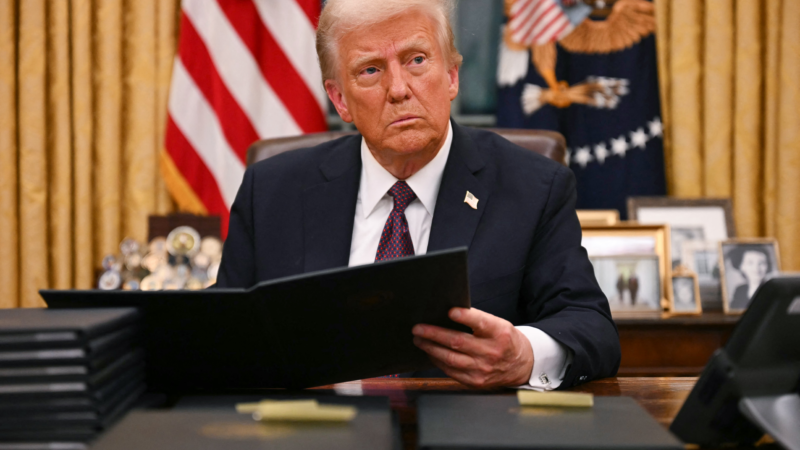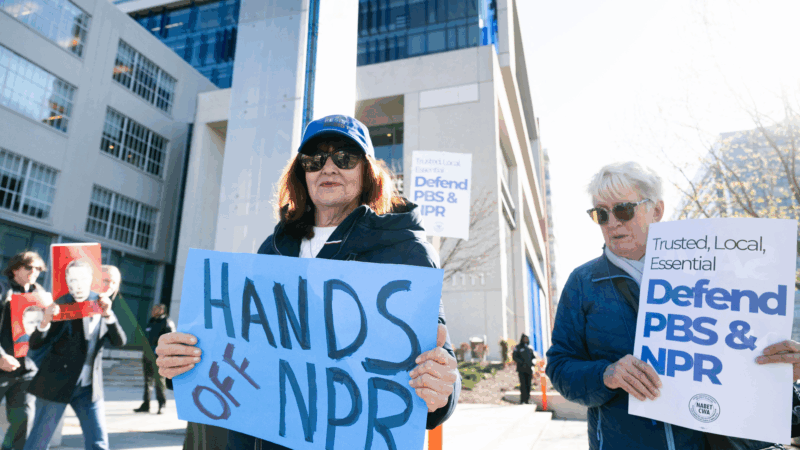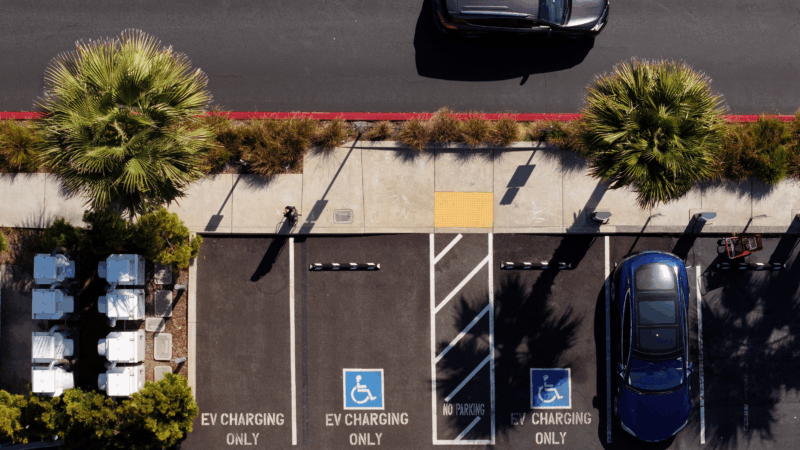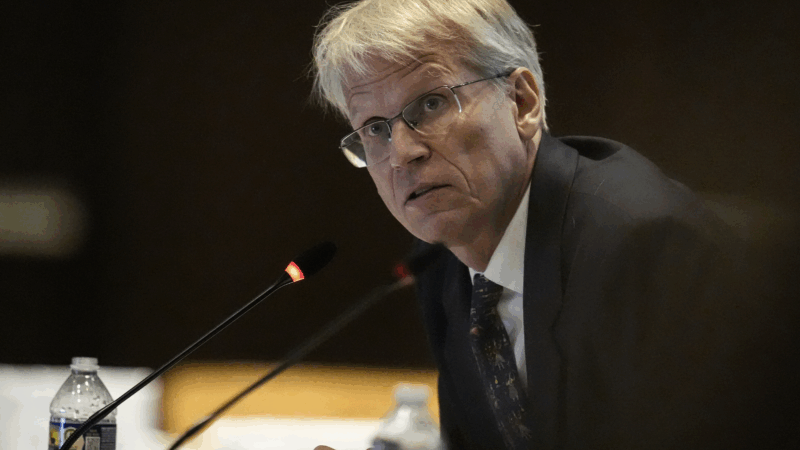Justice Department broadens Jan. 6 pardons to cover gun, drug-related charges
The Department of Justice has widened the scope of President Trump’s pardons for Jan. 6 riot defendants to include separate but related gun charges. The charges stemmed from FBI searches executed during the sprawling investigation into the Jan. 6, 2021 attack, which allegedly turned up evidence of other crimes not directly connected to the Capitol breach.
In legal filings this week, federal prosecutors asked judges to dismiss cases against two former Jan. 6 defendants, who had both faced federal gun charges.
This week’s legal filings represent a more expansive understanding of Trump’s Jan. 6 pardons than was initially clear. Trump’s order, which he issued on his first day in office, gave clemency for “offenses related to events that occurred at or near the United States Capitol” on Jan. 6.
Immediately after Trump’s pardons — which included defendants who violently assaulted police officers and those with long criminal records — the Department of Justice appeared to stand by the separate gun charges. That was then.
In the case against Elias Costianes of Maryland, federal prosecutors alleged he joined the mob that breached the U.S. Capitol on Jan. 6, and took videos of himself inside of the building. Costianes pleaded not guilty to the Jan. 6 charges, and his case was still pending when Trump took office and ordered the dismissal of all ongoing Capitol riot cases. But that was not Costianes’ only legal problem. When FBI agents first arrested Costianes and searched his residence on Feb. 12, 2021, they found four guns, along with evidence that Costianes used and sold cocaine and testosterone.
Costianes pleaded guilty to a charge of possession of a firearm or ammunition by an unlawful user of a controlled substance. He was sentenced to a year in prison, which he began serving earlier this month.
This week, the Department of Justice said in a court filing that it had concluded that Trump’s pardon order extended to Costianes’ drug and gun case, because it was sufficiently related to his Jan. 6 charges.
“He should be immediately released from custody in connection with this case because the President has pardoned him of the offenses in the indictment,” the government’s lawyers wrote.

Federal prosecutors had accused Daniel Ball of Florida of throwing an “explosive device that detonated upon at least 25 officers” during the Capitol riot, and alleged that he “forcefully” shoved police trying to protect the building. He was arrested in May 2023. According to charging documents, Ball had a criminal record before his arrest for Jan. 6, including for “Domestic Violence Battery by Strangulation,” “Resisting Law Enforcement with Violence,” and “Battery on Law Enforcement Officer.” Ball pleaded not guilty to the Jan. 6 charges, and his case was dismissed when Trump took office.
But when federal agents originally arrested Ball on the riot charges, prosecutors alleged they also found a gun and ammunition in his possession, which would be illegal given his criminal history. In August 2024, a grand jury in Florida indicted Ball for “Possession of a Firearm or Ammunition by a Convicted Felon.” He pleaded not guilty to the gun case. After Ball was released from detention on his Jan. 6 charges, the Justice Department indicated it planned to pursue the gun case and had him rearrested. Then, this week, the federal prosecutors appeared to reverse their position and filed a brief motion indicating that they would like to dismiss that case, as well.
Costianes and Ball are not the only Jan. 6 defendants who have faced ongoing legal problems. A Jan. 6 defendant from North Carolina, for example, has pleaded not guilty to federal charges of “Production of Child Pornography” and “Possession of Child Pornography,” stemming from the search of his residence as part of the Capitol riot investigation. It’s unclear how broadly the Trump administration will interpret the pardons going forward.
In the legal filing in Costianes’ case, Department of Justice lawyers said, “Whether the pardon applies is a fact-intensive and case-specific inquiry.”
Senators question Trump plan to kill federal funds for PBS, NPR and some foreign aid
Democrats and Republicans on the Senate Appropriations Committee pushed back against the Trump administration's bid to rescind federal funding for public broadcasting and international aid programs.
Judge orders Trump administration to resume distributing money for EV chargers
Congress designated money for building new EV chargers, but the Trump administration put a freeze on those funds. A federal judge issued a preliminary injunction ordering the program to resume.
Judge sees no reason to keep holding Abrego Garcia pending criminal trial
Despite the court order, if released from prison, Kilmar Abrego Garcia is likely to be immediately taken into custody by U.S. Immigration and Customs Enforcement.
Expert panel picked by RFK Jr. will scrutinize the vaccine schedule for kids
The advisory committee makes recommendations to the Centers for Disease Control and Prevention on the nation's vaccine schedule. Any changes could affect vaccinations for millions of children.
Trump’s signature policy bill is facing trouble on multiple fronts in the Senate
While Senate leaders have made several significant changes to the bill in recent days, the issue of funding for rural hospitals has emerged as a major roadblock.
Hold the yelling: Ebon Moss-Bachrach says ‘The Bear’ set is ‘very loving’
Moss-Bachrach has won two Emmys for his portrayal of an abrasive and ornery cook/maître d on the FX series The Bear. The show is known for kitchen chaos, but he says the set is calm and well run.







